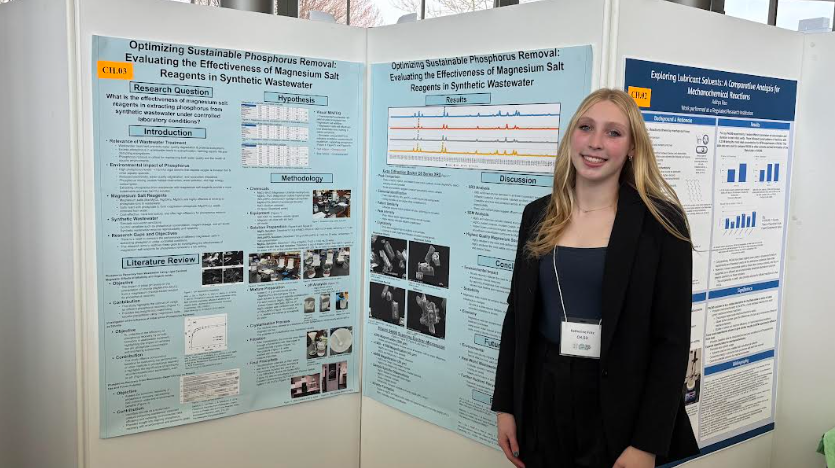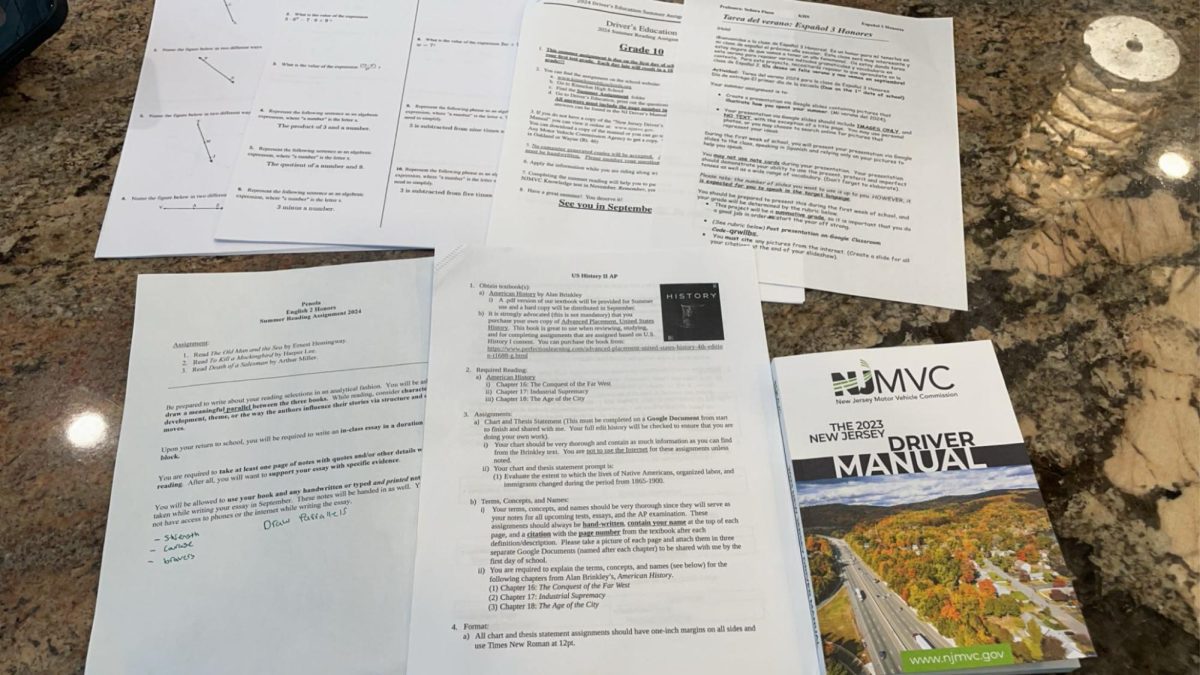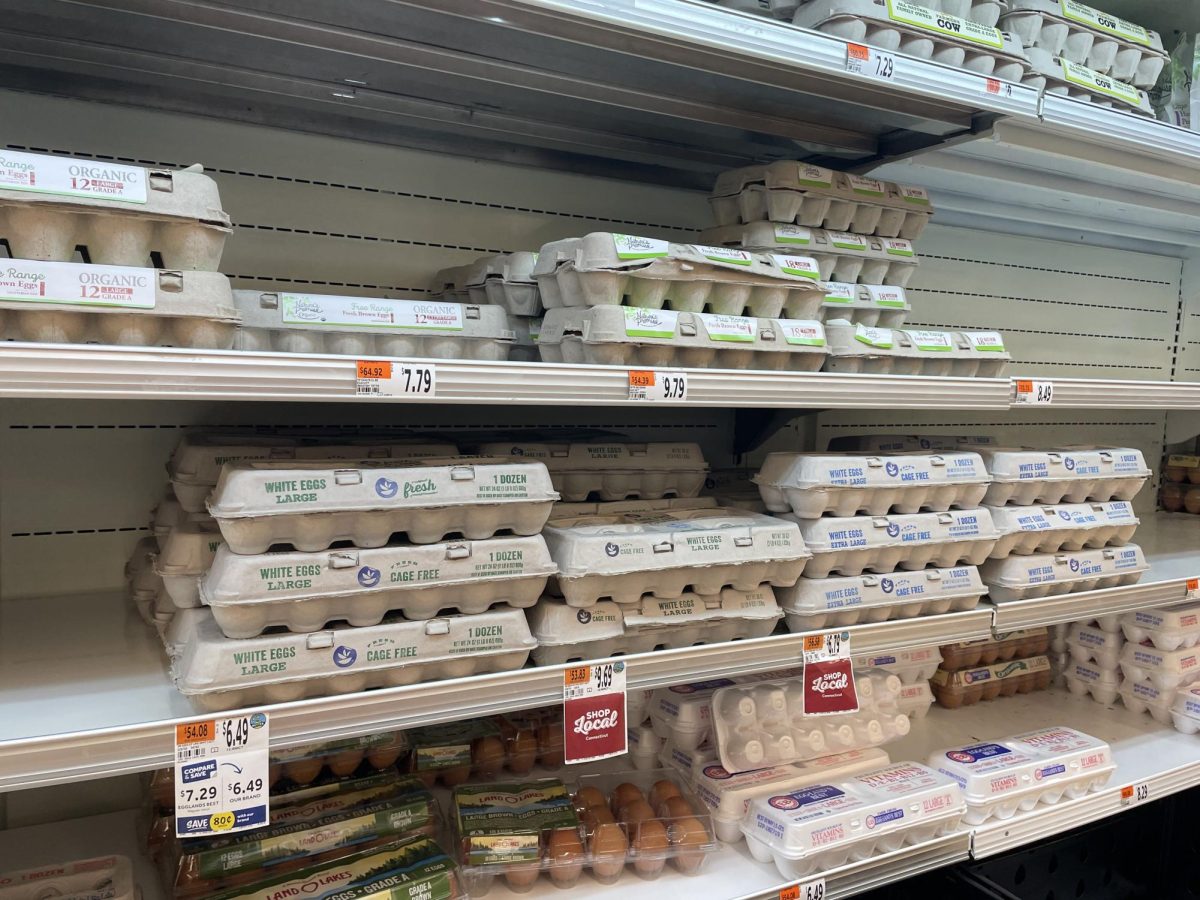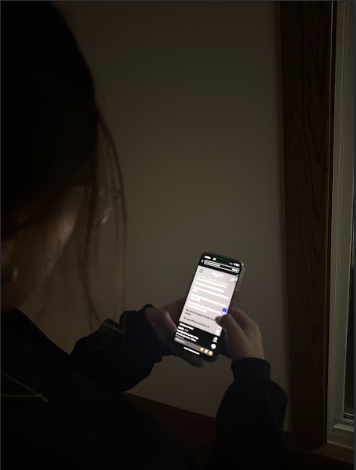According to the Social Security Administration, children only have a 25% chance of beating rhabdomyosarcoma cancer.
Rhabdomyosarcoma (sarcoma) is a rare type of soft tissue cancer. It often starts in muscle tissue and forms from mesenchymal cells that fail to differentiate. Yale Medicine says there are only about 400 diagnosed cases of sarcoma annually in the U.S.
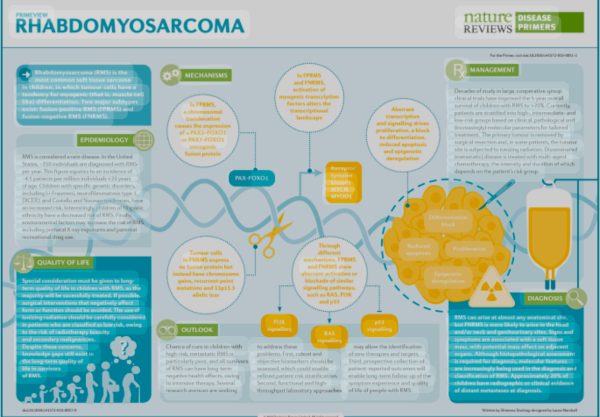
(Nature Review)
Amarachi Okere’s battle with sarcoma began in December 2023 at 13 years old when she began to experience back pain. The pain increased in severity and affected her sleep. Her mother, Chi Okere, is a physician and knew right away the excruciating pain meant something far more sinister than a pulled muscle. Mrs. Okere was correct, however, the severity was unbeknownst to her.
Okere was diagnosed with stage 4 sarcoma cancer. According to the National Cancer Institute, cancer has four stages, stage 1 being the most manageable to stage 4, which is commonly considered terminal.
Upon receiving the diagnosis, the family was shaken. Okere’s everyday life turned upside down. Her days were filled with long drives into New York City, extensive treatments, and fatigue after long days. Okere even had to step away from horseback riding.
For 52 weeks, Okere had weekly 10-minute chemotherapy sessions. These sessions were short and wouldn’t result in being sick. These weekly more manageable sessions were paired with a tri-weekly 24-hour treatment that would result in difficult days, sometimes even a week, of sickness. Okere also had to undergo surgery on her lower back where the tumor originated.
At the treatment center, Okere says that the other patients were often moody, sad, and unwelcoming. “Most teens when they’re in chemo, all of them are so sad. I think I was the most energetic person there.” The center’s unique mood was described as far more stressful and saddening than a general pediatric unit. As a result, Okere’s continuous upbeat energy appears even more incredible.
Her brilliance prevails when she makes the realization that cancer does not need to take over her life, she can still do the things she loves. Okere says, “Once I got out of the hospital, I felt like there was no point in being sad forever because being sad doesn’t help anything. I could still do the things I want. Cancer just made a little bit of a hurdle.”
Okere and her family relied on their faith in God, along with Okere’s bright outlook, to stay hopeful during the long days of treatment. During a conversation with a chaplain, a priest centered in a private institution such as a hospital, Chi took in the idea that God would play a big part in Okere’s journey. The chaplain had told her, “You can either go through cancer with God or without God,” and the family knew what route they were on.
Despite the lack of same-aged companions in the hospital, Okere had her support system. Her friends would come to visit her every time they were given the opportunity. Even though they weren’t always able to be face-to-face with her, they would always try.
Teammate and friend Madeline DeJager would visit often and bring her small gifts to lift her spirit. She would also bring Okere to horseback riding shows and be sure to keep her immersed in the sport, regardless of her inability to compete alongside the other equestrians. “I’d bring her to my shows, or my other friend’s horse shows, and keep her around the sport even if she couldn’t ride because she still wasn’t strong enough. She was always so positive through it all and her personality never really changed, if anything she got more confident.”
Okere is single-handedly changing the way athletes with cancer go about their athletic careers. Many times, athletes suffering from cancer will feel discouraged and give up on their athletics. Okere is a perfect example of how you can integrate receiving treatment and still try to perform athletically.
Despite having cancer, Okere’s personality has not changed. This is evidence of her strong character and perseverance. She and her friends formed an even closer bond during this experience. They felt such admiration for her ability to stay true to herself rather than letting her diagnosis consume her life. Chi Okere explained that “Amarachi has cancer, but cancer doesn’t have her.”
Mrs. Okere describes the differences in Okere’s experiences compared to the typical cancer stories presented through media. “You can do anything you want, even with cancer. If you’re a knitter, knit. If you love soccer, play soccer. Do what it is that you find passionate. That’s not how cancer is reflected in all the hallmark stories, in what the media presents, and it’s just so much more than people generally see. The throwing up and the shivering in a bed, that’s what they see, but there’s so much more than that. You don’t get to see those people running a marathon, or just living how they want to live.”
Okere’s story is unique to others because of her way of facing challenges. She missed months of school, yet worked hard and enrolled in all honors classes. She pushed herself to horseback ride the moment she recovered from a session of chemotherapy. By not feeling the need to wear a wig, she exudes confidence. These are just a few ways she showed her tenacity.
Okere is truly paving the way for a new view on cancer patients. She is setting the stage for others with a similar story to enjoy, love, and appreciate life to a new level.
Her unique understanding of the value of life inspired her to make a platform. Okere created her TikTok account on Nov.17, about 10 months after she started receiving treatment. She would post cancer-related videos. She gained a following in the wake of one of her videos going semi-viral.
Okere uses her platform to spread awareness and bring a new perspective on how cancer patients should be treated. “It’s important to know that people who have cancer don’t wanna be treated like the sick girl or the sick guy. They’re just normal human beings. I think it’s just important to treat people who are going through something like this with the same respect you would treat somebody who isn’t.”
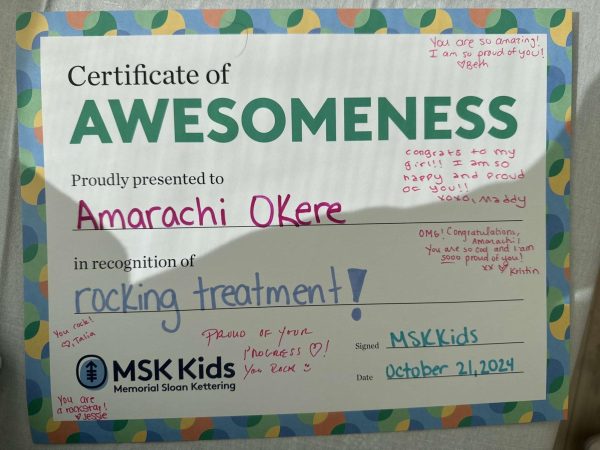
Now, at almost 15 years old, she has reached remission. On Oct. 21, Okere received her “Certificate of Awesomeness” from Memorial Sloan Kettering. After her 10-month-long battle, she is finally free of weekly chemo treatments. She still receives radiation on the spot where she had surgery as well as a final six cycles of 10-minute chemo. Patients with rhabdomyosarcoma cancer stand in the face of a 60% chance of relapsing, yet Okere remains strikingly fearless.



